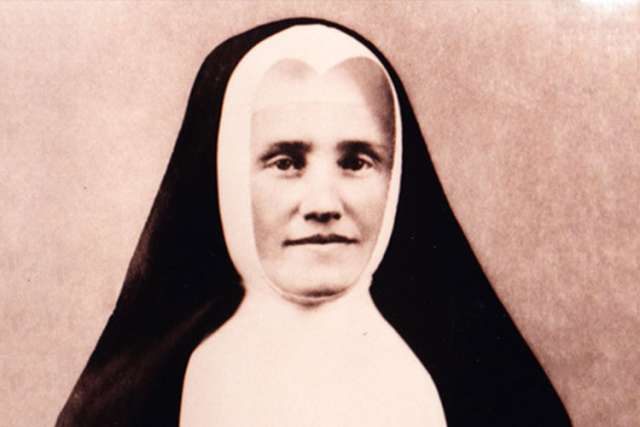The Pope recognized a miracle attributed to the intercession of Turgeon, who was born in Beaumont, Quebec, in 1840, and died in Rimouski, Quebec, in 1881. The recognition of the miracle clears the way for Turgeon's beatification.
Having been made “Blessed” a second miracle will be required to make Turgeon a saint.
Turgeon died of tuberculosis at the age of 41, but before her death she had founded a teaching order and extended basic education to children in remote villages in rural Quebec. The Souers de Notre-Dame du Saint-Rosaire de Saint-Germain de Rimouski today have 360 religious sisters active in Canada, Honduras, Nicaragua, Guatemala and the United States.
Turgeon was born one of nine children to Angéle Louis Labrecque and Mark Turgeon in 1840. As a girl, she was a regular at the church in Beaumont, Que. At 15 her father died and Turgeon boarded with the Ursuline Sisters in order to finish her education.
She began her career as a teacher in 1862 in St. Romuald and then St. Anne de Beaupre and Quebec City.
The first bishop of Rimouski, Msgr. Jean Langevin, turned to Turgeon for help with educating children. In small, remote villages there was simply no schools for children to attend and many parents doubted the value of education.
Turgeon entered the newly founded Sisters of the Little Schools (Sœurs des Petites-Écoles) in 1875 and on taking vows became the order’s first superior in 1879. The order was dedicated to training teachers and founding schools.
Despite frail health, she travelled to all the remote villages of Rimouski persuading parents to enrol their children in school. She died on the job in 1881.
It was only in 1891, 10 years after her death, that Rimouski’s little teaching order renamed itself after the Holy Rosary.
Having been declared Venerable, a miracle attributed to Turgeon will make her a
The Pope also accelerated the sainthood process of Blessed Joseph Vaz, an Indian missionary credited with reviving almost single-handedly the Catholic Church in Sri Lanka during severe persecution by Dutch colonial authorities in the 17th century.
Pope Francis moved the sainthood process forward without formally recognizing a miracle needed for the canonization of Blessed Vaz, a 17th-century Oratorian missionary from Goa, India, known as the "apostle of Sri Lanka."
During a meeting Sept. 17 with Cardinal Angelo Amato, prefect of the Congregation for Saints' Causes, the Pope also signed a decree recognizing a miracle attributed to the intercession of Blessed Sister Maria Cristina Brando. The 19th-century Italian religious left her wealthy family to devote her life to eucharistic spirituality and to found the Congregation of the Sisters, Expiatory Victims of Jesus in the Blessed Sacrament.
The dates for the canonizations of Blesseds Vaz and Brando were to be announced during a yet-unscheduled ordinary consistory.
St. John Paul II beatified Blessed Vaz during his first trip to Sri Lanka in January 1995. Pope Francis was scheduled to visit Sri Lanka, together with India, 20 years later, this January.
Blessed Vaz, born in India in 1651, entered Sri Lanka in 1687 disguised as a poor laborer in order to minister to the underground church.
At the time, the Dutch had taken control of Sri Lanka's coastal areas from the Portuguese. Fearing the island's Catholics might remain loyal to the Portuguese, the Dutch made Catholicism illegal, banished Catholic priests and confiscated Catholic churches and schools.
Aided by lay leaders, Blessed Vaz often went barefoot, with a rosary round his neck, ministering to and organizing Catholics throughout the island where the church had had no priests for over three decades. He was the lone Catholic pastor of Sri Lanka until other priests joined him in 1697 at his request.
Surviving two years in prison for being a suspected Portuguese spy, Blessed Vaz was then given permission to work as a missionary in the Sinhalese kingdom of Kandy until his death in 1711.
In another decree, the Pope recognized a miracle attributed to the intercession of Italian Archbishop Pio Alberto del Corona, a Dominican and founder of the Congregation of the Dominican Sisters of the Holy Spirit. He was born in 1837 and died in Florence in 1912. The miracle attributed to the intercessions of del Corona clears the way for his beatifications.


